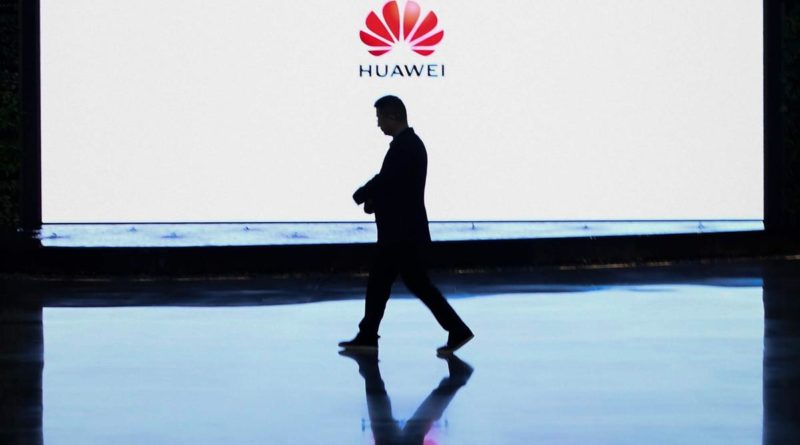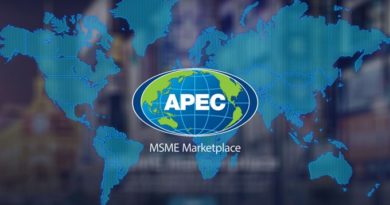The man behind Huawei
The U.S. contends that Huawei is effectively a creation of the Chinese government and is trying to persuade other countries to not buy Huawei products. (Wang Zhao / AFP / Getty Images).
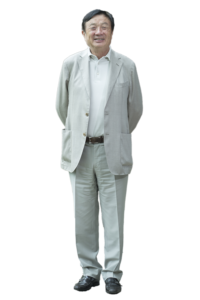
He turned a company with no intellectual property into the world’s largest telecom and made China a global leader in 5G technology. Washington says he had help from Beijing.
.
Standing on Huawei Technologies Co.’s sprawling new campus near Shenzhen, it’s hard to conceive that Ren Zhengfei, backed by five friends of friends, could have single-handedly turned his tiny start-up into a technology-driven colossus.How could Ren, then in his 40s and possessing no intellectual property, have grown Huawei into the world’s biggest seller of telecommunications equipment and one of the largest makers of smartphones, with 188,000 employees in 170 countries?..
ADS by Cloud 9:
.
– SPACE RESERVE FOR YOUR ADVERTISEMENT –
.
.
In fact, it’s entirely unbelievable, according to the U.S. government.
Washington would have you believe Huawei’s official history is a sham — that Huawei is effectively a creation of the Chinese government and that its success is based on Ren’s close ties to intelligence units within the People’s Liberation Army.
Huawei’s leadership unequivocally rejects the suggestion.
While Huawei’s origins and its independence are in dispute, its accomplishments and ambitions are not.
Huawei has taken an early lead in developing the next generation of wireless technology, 5G, with its promise of quantum leaps in connectivity. Should Huawei maintain and extend that lead while also advancing on other fronts, it and, by extension, China could be first to produce a new generation of sensitive military systems, smart grids, autonomous transportation vehicles and other crucial products and processes.
.
ADS by Cloud 9:
.
– SPACE RESERVE FOR YOUR ADVERTISEMENT –
.
.
ADS by Cloud 9:
.
– SPACE RESERVE FOR YOUR ADVERTISEMENT –
.
.
The U.S. worries that such a shift in the balance of power between it and China threatens its national security. The Trump White House, having achieved rare consensus with its own intelligence agencies, is taking unprecedented actions. The president has prepared, but has yet to sign, an executive order that would ban Huawei from the U.S. A federal grand jury recently indicted Huawei’s chief financial officer, Meng Wanzhou, charging her with fraud and sanctions violations. (Meng, who is Ren’s daughter, was arrested in Vancouver, Canada, and remains there while fighting her extradition to New York for trial.) The U.S. is also demanding — often in the face of considerable resistance — that governments and companies around the world stop buying or using Huawei products and equipment.
Now, Huawei is fighting back in the courts and in the media. In a series of recent interviews at its Shenzhen headquarters, Ren and other top officials repeatedly and forcefully denied Huawei is controlled by the Chinese government or military.
.
ADS by Cloud 9:
.
– SPACE RESERVE FOR YOUR ADVERTISEMENT –
.
.
“The United States has been attacking Huawei for over 10 years, no matter how minor the issue. We have done everything that we can to remain silent and tolerant. But being tolerant does not mean we are numb. Being silent does not mean we are cowards,” he said.
The 74-year-old founder and chief executive insists that he and the company have never knowingly compromised the security of its products and that they would never do so. He recently said he would rather close the company than do anything to hurt Huawei’s customers. He has also said his daughter committed no crime.
Huawei says the U.S. has failed to produce tangible evidence to support its claims. Instead, it says the fight is really about trade and technology.
In an era of mutual distrust, the risk is that both sides are right. With trade, technology and security inextricably linked, Huawei can be a proxy for Chinese ascendancy and, simultaneously, a pawn held hostage in America’s trade war with China.
Most Americans have never heard of Huawei, in part because it has been obsessed with secrecy since its founding in 1987, and in part because of prior restrictions on the sale of its products in the U.S.
.
ADS by Cloud 9:
.
– SPACE RESERVE FOR YOUR ADVERTISEMENT –
.
.
Huawei’s $1.5-billion, Disney-like campus in Dongguan has 12 replica European towns. The 2,200-acre site is connected by a red tram cloned from Switzerland. (Theodore Kaye / For The Times)
.
ADS by Cloud 9:
.
– SPACE RESERVE FOR YOUR ADVERTISEMENT –
.
.
The meetings with The Times were part of a broader media campaign to humanize the company and to lay to rest the recurring doubts about its origins and its current ownership.
In a small, gray-carpeted room on one of its campuses, the company keeps a 10-volume printed registry under a glass case. It contains the names of close to 100,000 employees said to be the company’s only shareholders. A Times reporter is shown the names, identification numbers, departments and the total shares owned. Here is proof, Huawei says, that its employees, not the state, are its proprietors.
His company’s embrace of transparency included disclosing to The Times the names and occupations of the five investors who helped Ren raise Huawei’s $5,000 start-up capital in 1987. The investors each paid equal amounts as private individuals and withdrew their stakes between 1991 and 2000, Huawei said.
Had they kept their shares, they would each boast stakes equal to Ren, who owns 1.14% of the company’s shares at $1.17 apiece — a stake worth more than $220 million, the company said.
Ren also dispelled some of the rumors about his succession plans, telling The Times he won’t anoint one of his children CEO. Instead, he says he will hand power over to a seven-member board.
.
ADS by Cloud 9:
.
– SPACE RESERVE FOR YOUR ADVERTISEMENT –
.
.
Yet, despite the effort to be more transparent, much of the company’s history remains obscure and its credibility has been riddled by controversy, including rivals’ persistent accusations of industrial espionage. Recent interviews, along with years of investigations, lawsuits and news reports, contradict parts of the company’s official narrative — underscoring how difficult it is to really know what’s behind China’s most powerful tech giant.
Huawei has become a center of innovation, and original research pours out of its modern labs. It also relies less on research obtained elsewhere.
.
ADS by Cloud 9:
.
– SPACE RESERVE FOR YOUR ADVERTISEMENT –
.
.
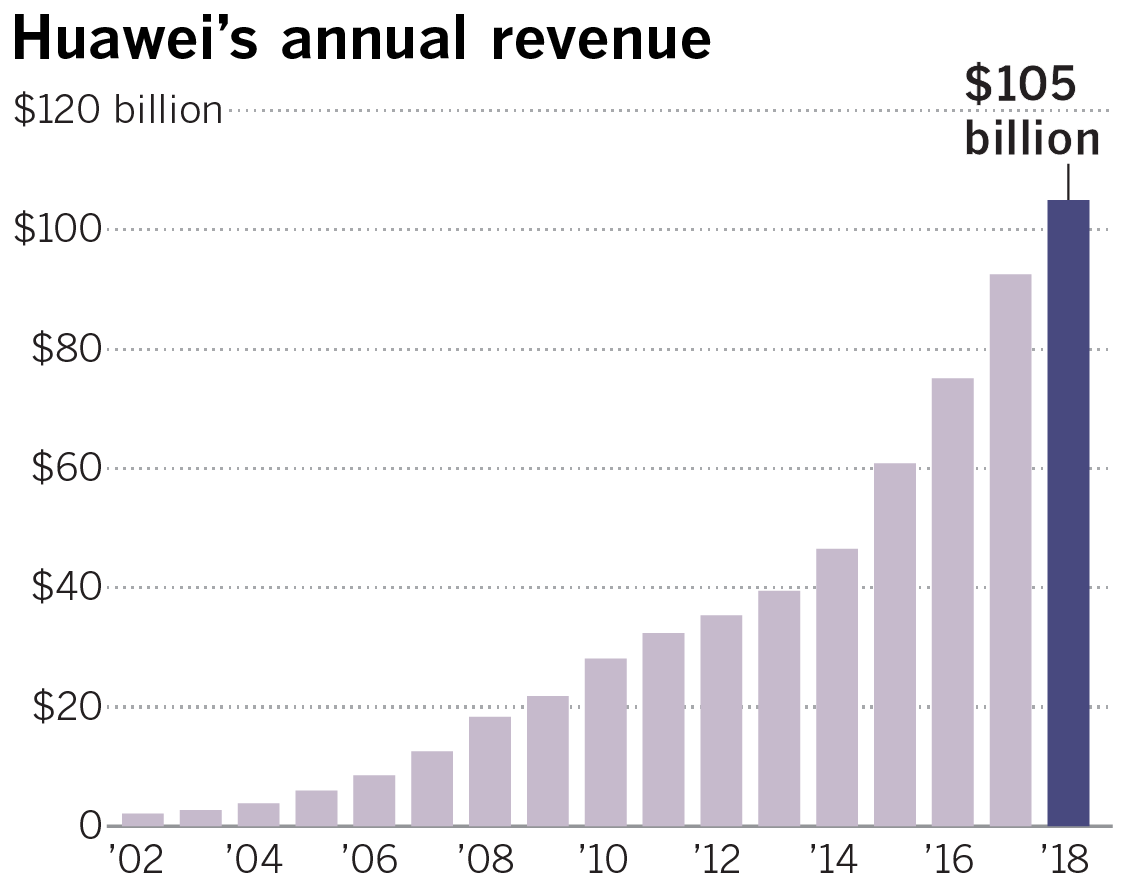
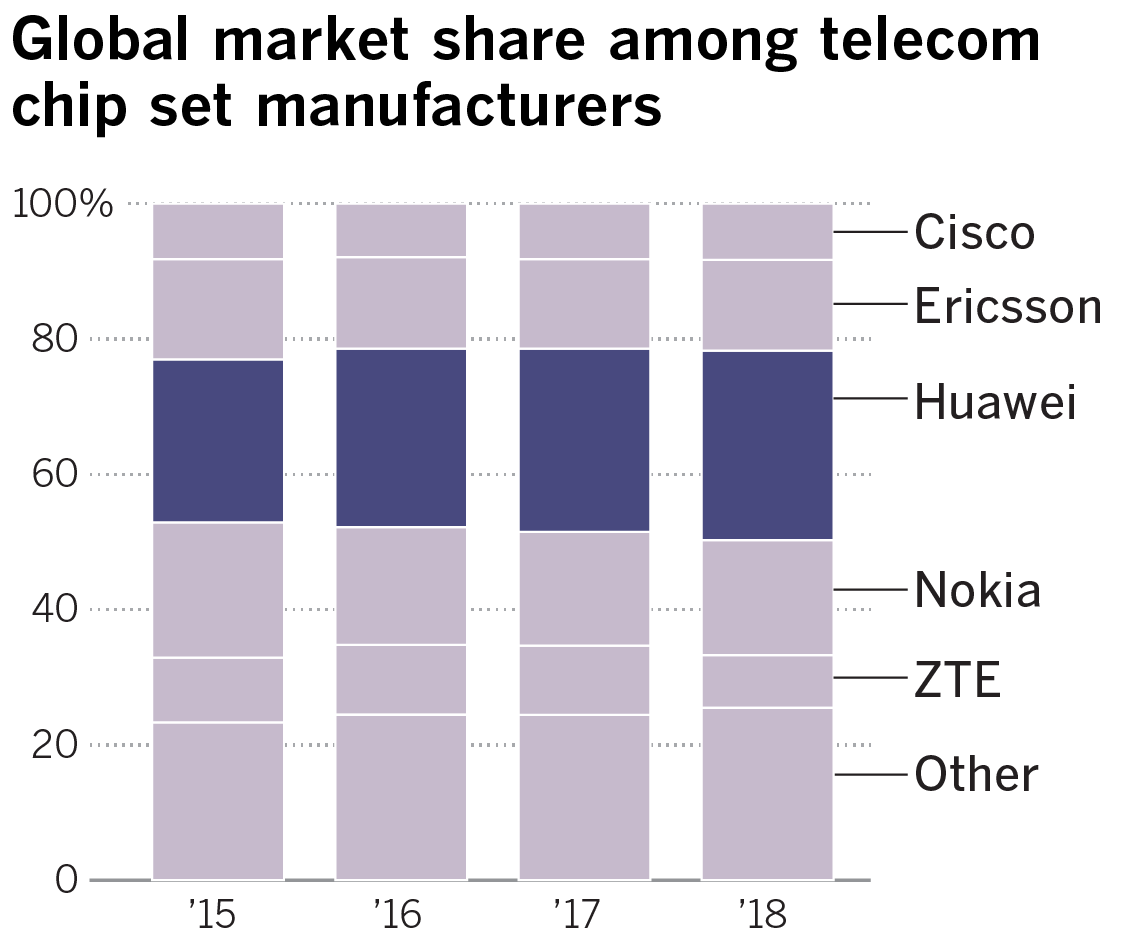
ADS by Cloud 9:
.
– SPACE RESERVE FOR YOUR ADVERTISEMENT –
.
.
ADS by Cloud 9:
.
– SPACE RESERVE FOR YOUR ADVERTISEMENT –
.
.
The company doesn’t hide its aspirations. A building set aside for entertaining foreign visitors has two massive rooms. One evokes the Palace of Versailles, and behind it there’s a replica of a traditional Chinese farming village, with terraced rice paddies. Its recently opened, $1.5-billion, Disney-like campus in Dongguan, north of Shenzhen, includes 12 replica European towns inspired by the likes of the Heidelberg Castle in Germany and the red-tile-roof buildings of Verona, Italy. The 2,200-acre site is connected by a red tram cloned from Switzerland, and all employee automobiles are parked in subterranean garages.
Despite U.S. efforts to constrain Huawei, its annual revenue rose almost 20% in 2018 to $105 billion. Ren predicts sales could triple over the next five years should Huawei overcome U.S. interference. A few years after that, China’s gross domestic product — led by Huawei and other tech companies — is likely to surpass that of the U.S.
It is difficult to see how the U.S can block Huawei without triggering a bruising, mutually destructive tech and trade war with China. While China may be too weak to win a trade war, it may also be too strong to lose.
.
ADS by Cloud 9:
.
– SPACE RESERVE FOR YOUR ADVERTISEMENT –
.
.
A PASSION FOR SELF-SUFFICIENCY
It’s a short distance from Shenzhen and Huawei’s shiny new buildings to the mouth of the Pearl River — scene of the Opium Wars and the onset of China’s “Century of Humiliation.”
It was there between 1839 and 1842 that a small number of British steamships destroyed China’s fleet, replacing a smug sense of empire with a series of unequal treaties.
China’s modern leaders — from Mao Tse-tung to Deng Xiaoping to Xi Jinping — have preached the need to overcome China’s shame by learning from the West and by improving through innovation and manufacturing.
“Since the Opium Wars, China has been defeated by countries with less population, wealth and geographical resources again and again,” Xi said in May. “One of the root causes of the situation is our inferior technology.”
That drive for self-sufficiency and a desire to overtake the rest of the industrialized world fueled creation in 2013 of Xi’s Belt and Road Initiative for infrastructure, which resulted in investments in more than 150 countries and, two years later, in Made in China 2025, an ambitious plan to upgrade manufacturing with a heavy emphasis on 10 industries, including information technology, artificial intelligence, transportation, agriculture and biotech.
Xi has paid special attention to the area around Shenzhen, where his father, while a party official, promoted development. It has gone from a fishing village to a technology hub — and a linchpin of the massive development plan that Xi has dubbed Greater Bay Area.
Xi’s power has risen with China’s economic growth, allowing him to become the most authoritarian Chinese leader since Mao. He has used the Communist Party’s apparatus to bring down rivals and to stifle dissent. Nevertheless, he has allowed Huawei and Shenzhen’s burgeoning technology sector to flourish.
The story of Huawei’s rise closely tracks China’s own.
Ren and his company now embody much of what China has fought to become and what the U.S. fears. Huawei and Shenzhen symbolize China’s crucial transition from cheap mass manufacturing to high-tech, higher-wage production. And, in so doing, both have spread their influence across the globe.
Ren is a survivor of China’s turbulent 20th century who saw his family persecuted during the Cultural Revolution. He belongs to an often-deified class of first-generation Chinese entrepreneurs celebrated for their ability to endure hardship, better known in China as “eating bitterness.”
.
ADS by Cloud 9:
.
– SPACE RESERVE FOR YOUR ADVERTISEMENT –
.
.
Within Huawei, Ren is regarded as more of a spiritual leader than a hands-on executive. His musings are often posted on an internal company website for employees to read. He’s prone to military imagery and has likened his troubles with Washington to a war.
“People would stand up and clap whenever he came into a room,” said a British national who worked for the company in Shenzhen and spoke on the condition of anonymity because he signed a nondisclosure agreement. “People would linger on his every word. He was revered by everyone. Despite not being an active CEO and being a chairman, his decisions were always final.”
Ren can be stoic when assessing Huawei’s challenges. “Nobody can develop a thick skin without scars,” he said. He takes pride in having overcome poverty, adversity and what he says is the unfair advantage government-owned companies had in the marketplace.
Ren Zhengfei, founder and CEO of Huawei, is regarded within the company as more of a spiritual leader than a hands-on executive. (Theodore Kaye / For The Times)
.
ADS by Cloud 9:
.
– SPACE RESERVE FOR YOUR ADVERTISEMENT –
.
.
Ren was born in 1944 in the impoverished southwestern province of Guizhou, the oldest of seven children. They often went hungry and grew up with few clothes, according to Ren. He graduated with a degree in civil engineering during the Cultural Revolution, when few people had jobs, and taught himself electronics using textbooks.
Ren said he joined the military in the 1970s, when it commissioned university graduates to help build a government synthetic fabric factory amid a fabric shortage. He said he left the military during a period when the government slashed the size of its army, leaving many without support from the state for the first time.
“When we were demobilized and tried to participate in civilian life, it was like we were abandoned by society,” Ren said.
Left with few options, he tried his hand at business just as China was growing a laboratory for market reforms across the border from the then-British colony of Hong Kong in a burgeoning town called Shenzhen.
Ren’s first business effort, a small state-owned enterprise with 20 employees, was a flop. He then succeeded in raising capital with five other investors in Shenzhen to launch Huawei, a company that would start out by selling telephone switch equipment procured from Hong Kong.
To impress job candidates, the fledgling company claimed to occupy the top two floors of a converted residential apartment building — prime real estate in the special economic zone. Visitors, however, would learn Ren counted the roof as the second floor. A little embellishment went a long way.
.
ADS by Cloud 9:
.
– SPACE RESERVE FOR YOUR ADVERTISEMENT –
.
.
“We had no idea what the market economy was. I didn’t even know what a supermarket was,” Ren said.
Just how Huawei grew to become one of the biggest privately held companies in the world remains the subject of fierce debate.
Ren and company officials say it was pluck, good leadership and tireless work.
Officials in the U.S. say Ren was a high-ranking intelligence officer with the People’s Liberation Army and that his connections played a role in Huawei being plied with government support to help China overcome its reliance on foreign telecommunications gear. They dismiss the company’s employee stock ownership system, insisting it was developed to mask state ties.
Huawei says it benefits from state subsidies just like any other Chinese or U.S. company would from their government. But it contends that the list of shareholders and the healthy payouts they receive both suggest capitalism has contributed more to its success than communism.
“No Chinese government agency or legal entity from China or abroad holds any share of Huawei,” Guo Ping, one of the company’s three rotating co-chairmen, told The Times.
What’s certain, analysts say, is that Huawei has made the most of its situation. Early in its history, it seized rural Chinese markets left open by foreign and state-owned firms, often delivering phone lines to villages for the first time. That gave it the foundation to then penetrate urban markets, distinguishing itself by offering customer support when rivals didn’t.
.
ADS by Cloud 9:
.
– SPACE RESERVE FOR YOUR ADVERTISEMENT –
.
.
When it was ready to go overseas, Huawei had the backing of China’s policy banks that extended billions of dollars in credit to attract customers, mostly in emerging markets that coveted the company’s low prices.
“Ren comes out of an era where the lines between military and commercial were blurred,” said James Lewis, a former U.S. State Department official and senior vice president and director of the Center for Strategic and International Studies’ Technology Policy Program. “He was able to parlay his connection to the Chinese government to make it work. If it wasn’t for Chinese government support, there wouldn’t be a Huawei.”
Interviews with half a dozen current and former Huawei employees, however, paint a picture of a fiercely capitalistic company that loathed being associated with the government.
One staffer who works at the company’s Shenzhen headquarters said Huawei was like an adopted child who outperformed the state’s weak and corrupt biological children — its state-owned companies. Others said Huawei has rejected requests from the state to take on projects overseas.
Money has been an important factor in motivating staff. Some were surprised with shockingly high bonuses for completing projects.
“It’s just obscene amounts,” said a Thai national who worked for Huawei in Bangkok from 2015 to 2017. “Bonuses that come that way usually exceed our annual base salary.”
Another former employee, a European who worked at the Shenzhen headquarters for a year, said high pay and surprise bonuses were common. He compared foreign hires at Huawei to mercenaries.
.
ADS by Cloud 9:
.
– SPACE RESERVE FOR YOUR ADVERTISEMENT –
.
.
“We were just there because there was good money,” he said.
Employees who meet performance goals are given the option to buy company shares. One former worker who used to be deployed in Egypt said buyers had to sign waivers acknowledging that their stocks’ value could rise and fall.
“But every year, everyone made money,” said Joseph Tian, an IT staffer at Huawei for 10 years who left in 2017.
A company official said Huawei shares have never declined.
The lofty pay was necessary to justify a grueling work environment in which employees were expected at times to do the work of three people. Huawei’s so-called “wolf culture” even encompassed Cultural Revolution-styled self-criticism sessions.
The Shenzhen employee said Chinese staff are ranked A, B, C or D at regular performance reviews. Those who score A received bonuses double those of B employees, and those who got a C two years in a row were let go. At least 10% of employees must get Cs, she said, which means everyone strives harder for the higher grades.
None of the employees said they knew of instances of spying or stealing of intellectual property — though the Thai employee in Bangkok said engineers can easily access client servers, track people’s phones and eavesdrop on their internet traffic if they wanted. Company protocol called for anyone who did that without authorization to be punished, he said.
But in China, state authority can supersede company rules.
.
ADS by Cloud 9:
.
– SPACE RESERVE FOR YOUR ADVERTISEMENT –
.
.
Interviews with Huawei employees and companies doing business with it reveal a widespread belief that the Chinese government has placed intelligence agents in Huawei offices around the world and that conversations are routinely monitored.
“The state wants to use Huawei, and it can use it if it wants,” the staffer in Shenzhen said. “Everyone has to listen to the state. Every person. Every company and every individual, and you can’t talk about it. You can’t say you don’t like it. That’s just China.”
.
ADS by Cloud 9:
.
– SPACE RESERVE FOR YOUR ADVERTISEMENT –
.
.
.
– SPACE RESERVE FOR YOUR ADVERTISEMENT –
.
.
THE RACE FOR 5G
If 3G gave cellphone users access to the internet and 4G brought streaming video, then 5G will be remembered as the technology that tethered anything fitted with a chip to wireless networks.
As much as 100 times faster than its predecessor, 5G will be quick enough to help self-driving cars avoid pedestrians, aid doctors performing surgeries remotely and allow electricity grids to use real-time data to become more efficient.
While the U.S. has been falling behind, Huawei has been plowing ahead in 5G research and development.
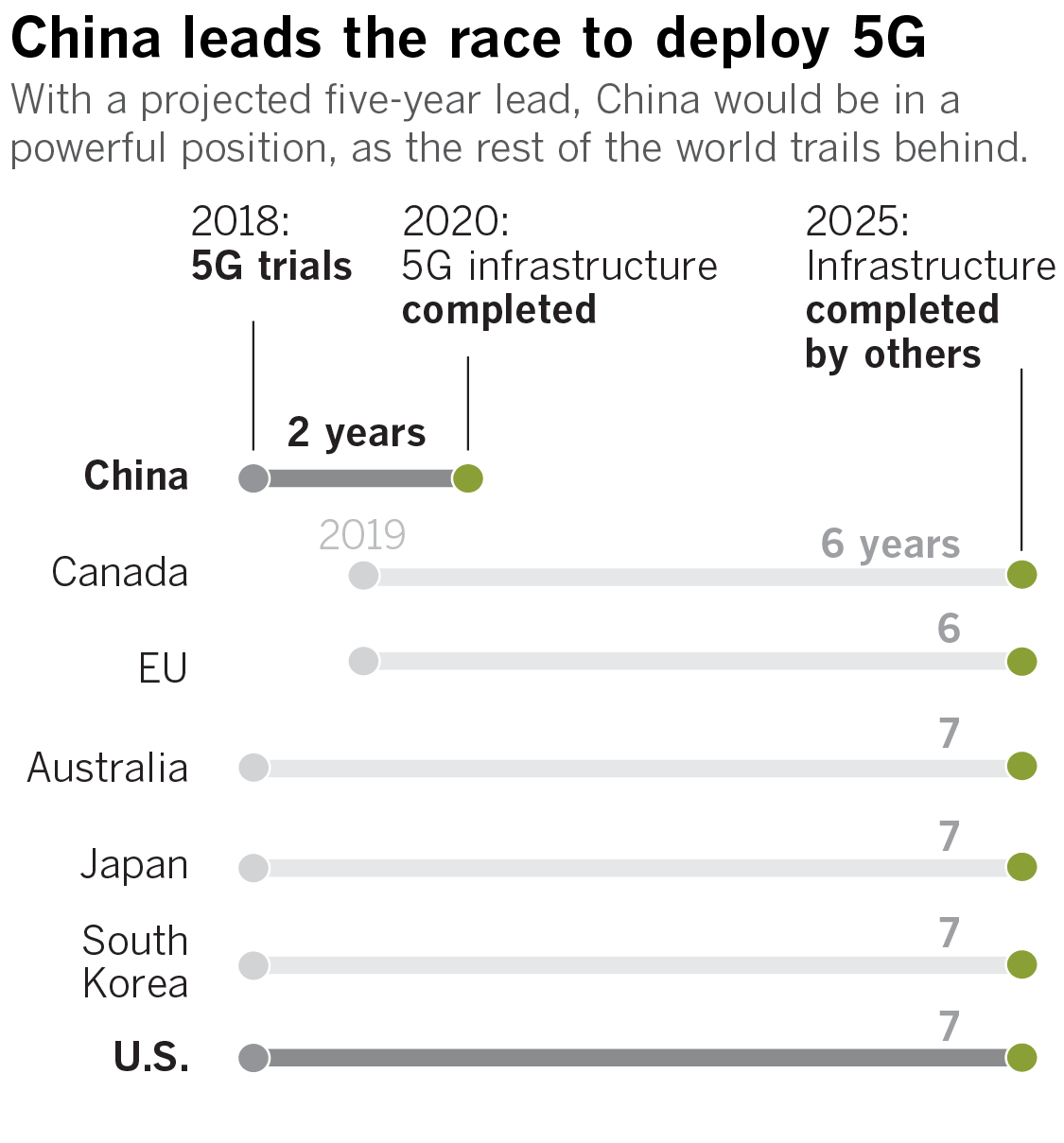
.
– SPACE RESERVE FOR YOUR ADVERTISEMENT –
.
.
The company proudly shows visitors an elaborate display that outlines its ambition — and what worries U.S. intelligence officials — an imagined city of the future running on Huawei technology.
The company has spent 14% of its annual revenue on R&D in each of the last two years and dedicates 45% of its workforce to R&D — one of the reasons Huawei was able to file for more patents than any other company in the world last year, with 5,405, according to the World Intellectual Property Organization. That’s nearly double that of the closest rival, Mitsubishi Electric.
If those patents are used by other companies, Huawei is paid royalties — a likely windfall given the potential scope of next-generation wireless.
Guo, the co-chairman, said the company is the first “that can deploy 5G networks at scale.” Other Huawei executives say the company is at least a year ahead of America’s most advanced companies in developing 5G and that it will be a low-cost provider.
As of February, the company says it has signed more than 30 commercial contracts for 5G with global carriers and shipped more than 40,000 5G base stations to countries around the world — and that it is already offering customers in Europe and Asia prices its U.S. rivals may not be able to match.
The full transition into the 5G age could take a decade — and it creates vulnerabilities and risks unforeseen given the expected surge in the number of connected devices and amount of data that could be exploited by adversaries and bad actors. Unlike hardware-driven 4G, the new wireless generation will rely heavily on software created by telecommunications providers such as Huawei.
Beyond the risk of spying, critics of Huawei worry the company’s massive global footprint in places such as Europe could give China immense leverage in a time of conflict.
“There is a direct connection between [British Telecom] and Shenzhen,” said Lewis of the Center for Strategic and International Studies. “Huawei pumps out software updates and patches…. That’s where the risk is. [The British] could get one update that says, ‘Turn everything off.’ ”
Huawei is adamant it won’t cave to government pressure to do anything of the sort. It commissioned a Chinese law firm last year to argue in a report that Chinese law doesn’t require the company to cooperate in intelligence gathering. That’s been met by skepticism overseas, given the Communist Party’s penchant for superseding the country’s laws.
Critics also point to passage of China’s National Intelligence Law, which became effective in 2017. It requires that any Chinese organization or citizen “shall support, assist in, and cooperate in national intelligence work” in accordance with other Chinese laws.
One recent example suggests it might not be easy to resist government pressure, particularly during a national crisis or a deepening U.S.-China conflict. Didi, China’s equivalent to Uber, tried unsuccessfully to resist revealing its database to a government supervisory agency last year.
Ren says that Huawei has already told the European Union that it would be willing to sign a “no-spy” agreement, promising not to engage in any kind of illegal intelligence-gathering and not to have any kind of “back door” embedded in Huawei equipment or software. He says he also believes that the Chinese government would join other nations in signing a similar agreement. He says, however, that U.S. unwillingness to consider “no-spy” agreements has slowed their progress.
Guo reminds interviewers that Edward Snowden, the former National Security Agency contractor, revealed five years ago that the U.S. had spied on Huawei in an operation called “Shotgiant” that sought access to Huawei’s servers.
“Huawei has not and will never plant back doors. And we will never allow anyone to do so in our equipment,” the 53-year-old executive said.
ADS by Cloud 9:
.
– SPACE RESERVE FOR YOUR ADVERTISEMENT –
.
.
Though Huawei has never been caught spying, it has long been dogged by suspicions and controversy.
Take the case of the African Union headquarters in Addis Ababa, Ethiopia, whose Huawei-built IT system was a gift from China to the organization. In 2017, the French newspaper Le Monde reported a hacking of the headquarters’ servers via a back door installed in the system. For five years confidential data were transferred to Shanghai between midnight and 2 a.m., Le Monde said. China denied any role, and Ren said Huawei was not responsible for the breach.
In January, Polish police arrested Wang Weijing, a Chinese employee of Huawei, and a Polish national on suspicion of spying. Huawei denied any knowledge of Wang’s actions and fired him. Wang, formerly an attache to the Chinese consul general in Gdansk, had joined Huawei in 2011 as public relations manager.
ADS by Cloud 9:
.
– SPACE RESERVE FOR YOUR ADVERTISEMENT –
.
.
RISING PRESSURE
The U.S. has been trying to slow Huawei’s growth by warning that the Chinese government has the ability to access Huawei hardware, and now software, in ways that compromise other countries’ telecommunications and infrastructure. American officials like to quote Michael Hayden, the former NSA director, who told the Australian Financial Review in 2013 that Huawei had collected intelligence abroad on behalf of the Chinese government. Last year CIA Director Gina Haspel told Congress that she “wouldn’t use Huawei products.”
In response, John Suffolk, Huawei’s head of global cybersecurity and the British government’s former chief information officer, has said Huawei is more open and transparent than any company in the world, and he challenged the U.S. to provide proof to support its claims.
U.S. Secretary of State Michael R. Pompeo has warned that the U.S. might be unwilling to share intelligence with its European allies should they buy Huawei technology. Nevertheless, Germany and other European countries have shown little interest in following America’s lead. European Commission Vice President Andrus Ansip, who’s responsible for cybersecurity, said last month his job was to assess the threat, not weigh evidence of past wrongdoing.
Britain initially pushed back, noting it and Huawei had established an independently managed Cyber Security Evaluation Center in 2010 that enabled it to deal with any security risk. But last month British officials accused Huawei of failing to address a litany of security flaws in its software. Meanwhile, Australia has said it won’t let Huawei bid on public telecom infrastructure projects. Japan has effectively done the same, though it doesn’t specifically name Huawei.
In March 2018, the U.S. Treasury effectively blocked Broadcom’s proposed $117-billion hostile takeover of San Diego’s Qualcomm on the grounds that Huawei might be the beneficiary should Broadcom, then a Singapore-based company that has since shifted to San Jose, cut funds for research after acquiring Qualcomm. “China would likely compete robustly to fill any void left by Qualcomm as a result of this hostile takeover,” Aimen N. Mir, a Treasury deputy assistant secretary, wrote.
Huawei — and the Chinese government — have often called on Western governments to allow Huawei “fair market access” to provide network equipment in Western countries. China, however, bars many foreign tech companies from full participation in its economy, among them Facebook and Google.
.
ADS by Cloud 9:
.
– SPACE RESERVE FOR YOUR ADVERTISEMENT –
.
.
ADS by Cloud 9:
.
– SPACE RESERVE FOR YOUR ADVERTISEMENT –
.
.
INDICTMENTS
In December, Meng Wanzhou, Ren’s daughter who is known as Sabrina and is Huawei’s chief financial officer, was indicted in New York on charges she and other Huawei executives had defrauded several large banks by lying about the company’s trading with Iran in violation of U.S. sanctions. She was arrested in Vancouver, Canada, where she remains, proclaiming her innocence while fighting extradition to the U.S.
It was clear that Meng, at least in the eyes of Washington, was a key target. The lineup announcing her indictment included three Cabinet members — then-acting U.S. Atty. Gen. Matthew G. Whitaker, then-Homeland Security Secretary Kirstjen Nielsen and Commerce Secretary Wilbur Ross — accompanied by FBI Director Christopher A. Wray, two assistant attorneys general and one U.S. attorney. (In contrast, two years earlier, the indictment of drug kingpin Joaquin “El Chapo” Guzman rated only one Cabinet member: then-acting Atty. Gen. Sally Q. Yates.)
Before Meng is convicted, however, she has to be tried and before she is tried, she has to be extradited. Neither is a certainty, and the process, which allows for appeals, could take years.
ADS by Cloud 9:
.
– SPACE RESERVE FOR YOUR ADVERTISEMENT –
.
.
Although Canadian courts usually approve U.S. extradition requests, Meng’s Vancouver lawyer, David J. Martin, has won several cases in which he persuaded Canadian courts to assert their independence from heavy-handed U.S. prosecutors. Meng’s lead U.S. lawyer, Reid Weingarten, a partner in Steptoe & Johnson’s Washington office, is one of America’s most accomplished white-collar criminal defense lawyers.
Meng’s lawyers are expected to argue that the U.S. has criminalized what would typically be treated as a commercial dispute to please the White House. They will say the lineup of Cabinet heads announcing the indictment proves their point, and President Trump’s claim that he might intervene in the case if it helps him get a trade deal with China proves that Meng is being treated like a pawn in a geopolitical game. Meng “should not be a hostage to trade talks,” Weingarten says.
A second indictment, also unsealed in January, charged Huawei with conspiring to steal technology from T-Mobile related to an industrial robot named Tappy that was used for testing smartphones. The U.S. says Huawei established a bounty system that rewarded its overseas employees for engaging in industrial espionage. Huawei has rejected the charges and says that it and T-Mobile settled their differences amicably several years ago — just one in a litany of lawsuits filed by the likes of Cisco and Motorola over the decades accusing Huawei of intellectual property theft.
Then, in moves that undercut Huawei’s claims of independence from the government, Chinese authorities detained two Canadians days after Meng was arrested. They remain held without access to lawyers in what’s widely believed to be trumped-up state secrets charges in retaliation for Meng’s arrest.
In the northern city of Dalian, a Canadian convicted of drug trafficking was re-sentenced and handed the death penalty — another unusual move seen as retaliation.
Huawei also fired back by suing the U.S. in federal court in Texas, accusing Congress of violating the Constitution when it barred federal agencies from purchasing the firm’s equipment. By suing, Huawei hopes it can force the U.S. to disclose it has no evidence — making it easier, at a minimum, for other countries to buy its 5G equipment.
In his interview with The Times, Ren showed a thorough understanding of how U.S. courts are supposed to impose the rule of law on the executive and legislative branches. He says the U.S. government wants to punish Huawei without adhering to judicial process. “We very deliberately and thoroughly considered all our options” before suing the U.S. government in a U.S. court. “If we win this case, it would prove the greatness of the U.S. legal system.”
.
ADS by Cloud 9:
.
– SPACE RESERVE FOR YOUR ADVERTISEMENT –
.
.
NO SMOKING GUN
The Justice Department news release announcing the two indictments included damning quotes from senior officials. “Huawei and its chief financial officer broke U.S. law and have engaged in a fraudulent financial scheme that is detrimental to the security of the United States,” said then-Homeland Security Secretary Nielsen. FBI Director Wray added, “These charges lay bare Huawei’s alleged blatant disregard for the laws of our country and standard global business practices.”
The rhetoric and the indictments notwithstanding, none of the U.S. intelligence officials interviewed over several months for this story have made information public that supports the most damning assertions about China’s control over Huawei and about Ren’s early ties to Chinese military intelligence.
.
ADS by Cloud 9:
.
– SPACE RESERVE FOR YOUR ADVERTISEMENT –
.
.
They have yet to provide hard evidence and, privately, these officials admit they don’t have any. Instead, they frequently fall back on a 2012 House Intelligence Committee report.
A close look at that report and its antecedents shows how a series of flimsy and convoluted references and explanations have taken on a life of their own.
Huawei had written the U.S. government in 2011, denying it posed a security risk and requesting a full investigation of its corporate operations. The request backfired. Instead of vindicating Huawei, the report faulted the company for not providing enough information about its origins and its ties to the Chinese government. After proclaiming that Chinese actors had become “the world’s most active and persistent perpetrators of economic espionage,” the report implied that Huawei equipment might be used to employ malicious, illegal implants, enabling China to penetrate sensitive security systems.
The Intelligence Committee report said many industry analysts “believe” Ren was a “director of the People’s Liberation Army (PLA) Information Engineering Academy,” an organization associated with China’s signals intelligence division, 3PLA, “and that his connections to the military continue.”
The footnote referred to two pages in a 332-page, 2005 report by Rand Corp. about China’s defense industry, which attributed the information about Ren to a profile by Bruce Gilley that appeared in the Far Eastern Economic Review in 2000. Citing Alexei Shalaginov, Huawei’s then-deputy sales manager in Russia, Gilley wrote that Huawei got a contract from the military in the 1990s that was “small in terms of our overall business, but large in terms of our relationships.”
Gilley, now a political scientist at Portland State University, cannot remember who told him about Ren’s military career but stands by the story. Shalaginov, who worked for Huawei in Russia and Shenzhen from 1997 to 2017, said he thinks the contract was an important marketing tool that helped Huawei sell to other companies but that it didn’t imply close relationships with the military.
“Huawei was a small company in China” at the time, Shalaginov said in a recent interview with The Times. “To make a deal with the PLA was a big deal.”
Since 2012, U.S. intelligence officials say they have continued to pursue leads that suggest Huawei is still gathering competitive intelligence and there are strong indications that the Chinese government, with or without Huawei’s permission, has installed operatives with unofficial cover in some Huawei foreign offices.
Having failed to persuade customers to abandon Huawei through a recitation of alleged bad acts, U.S. cybersecurity experts are focusing increasingly on Huawei’s and China’s capabilities.
“We have seen examples where Chinese spies have gone undercover with Huawei,” said one senior intelligence official. “At the same time, we think that it is becoming increasingly tough to detect changes in software from Huawei and other Chinese companies. Under such circumstances, our ability to show capability may be as relevant as our showing a smoking gun.”
ADS by Cloud 9:
.
– SPACE RESERVE FOR YOUR ADVERTISEMENT –
.
.
THE REAL FIGHT
It will be important to see whether Huawei returns to its opaque roots or presses forward with its commitment to transparency. The company was so secretive that for years there were no public photographs of Ren, according to Richard McGregor, analyst at the Lowy Institute in Sydney, Australia, and author of “The Party,” who first visited Huawei’s R&D center 15 years ago.
Ren has shown every sign that he is relishing his meetings with foreign journalists. He speaks with passion about the need for transparency and for ensuring the security of Huawei products.
He disputed the idea that China under Xi is more repressive and more authoritarian. He said that 30 or 40 years ago, he would not have been able to speak freely with Westerners. Despite the U.S. government’s war on Huawei, Ren says he has been “a big fan of the U.S. since I was young.” He added that he has learned a lot by observing the work of the U.S. military “over the last 20 or 30 years.”
Given Ren’s continued importance to Huawei, it is not surprising that his extraordinary personal life — long kept private — has also become a subject of intense interest.
Ren’s first wife was Meng Jun, the daughter of the vice governor of Sichuan province. Chinese media reports suggest the connection helped Ren launch Huawei. She is the mother of Meng Wanzhou. The company says the marriage had no bearing on Huawei’s formation and that they divorced before Ren started the firm.
After starting Huawei, he divorced Meng and married Yao Ling, his secretary, according to Chinese media. They have a daughter, Annabel Yao, a Harvard computer science student and ballerina at Harvard Ballet Company.
Those who have observed Ren at work describe a man singularly focused on his company and driven by constant fear he could lose it all one day. When asked if he saw parallels between his career and that of Andy Grove, the legendary co-founder of Intel, who wrote “Only the Paranoid Survive,” Ren replied that he too is a “paranoiac.”
The obsession with work has come at the expense of his children, Ren admitted. He told journalists in January his connection with Meng during her childhood and adolescence was “not that strong,” and nor was he close to his other two children.
That doesn’t make him any less proud of them, though. Ren boasted that his daughter Meng Wanzhou worked up until two days before her due date when pregnant and came back to work two weeks after the birth, according to the Shanghai Observer.
.
ADS by Cloud 9:
.
– SPACE RESERVE FOR YOUR ADVERTISEMENT –
.
.
There has been much speculation about Ren’s succession plan.
In 2010 he told a Chinese journalist he would not choose his son Meng Ping as his successor as CEO because he was unfit for the role. In a letter to employees in 2013, Ren said neither his son nor daughter had the character, ambition, vision or acumen to drive the company and they would not be in the running to succeed him, Reuters reported.
Ren, who has veto power at Huawei, told The Times the company will eventually be handed over to a board when he retires.
“Our Articles of Governance state that veto power can be inherited, but that’s not going to be by my family,” Ren said. “Instead, veto power is going to be collectively exercised by an elite group made up of seven elected members. It is possible that none of them are my family members.”
ADS by Cloud 9:
.
– SPACE RESERVE FOR YOUR ADVERTISEMENT –
.
.
Ren said he was in no rush to relinquish his veto power — not with uncertainties in the global economy because of head winds such as Brexit. But the revelation underscores how Ren is increasingly willing to incrementally lift the veil over his company.
Some of the company’s claims remain difficult to corroborate.
The Times could not find any of the original five investors Huawei named. They include Mei Zhongxing, manager at Shenzhen Sanjiang Electronics Co.; Zhang Xiangyang, a member of the Shenzhen Bureau of Development Planning; Wu Huiqing, an accountant at Shenzhen Petrochemical Co.; Shen Dingzing, a manager at Zhuhai Communications Equipment Manufacturing Co.; and Chen Jinyang, a manager in the trade department of the state-run China Travel Service in Shenzhen.
Huawei said it was unable to connect The Times to them either, explaining some gave up their stakes acrimoniously, requiring court mediation.
Ren still holds out hope that skeptics will trust Huawei and that its products will one day be welcomed in the U.S. But there’s a realization inside the firm that the fight over the company’s future has global significance.
The PR blitz and a sometimes clumsy charm campaign in recent months have done little to persuade U.S. intelligence officials to change their minds.
“The problem is less Huawei and more the Chinese government,” Lewis said. “This is a country that has 2 million people in reeducation camps. When they were annoyed with Canada, they detained two Canadians and retried another one and sentenced him to death. If Huawei was a Brazilian company, no one would see buying its equipment as risky.“
The fate of Huawei will be decided by forces that could define the unfolding century: the tension between U.S. exceptionalism and Chinese expansionism.
Credits: Iris Lee
.
ADS by Cloud 9:
.
– SPACE RESERVE FOR YOUR ADVERTISEMENT –
.
.

